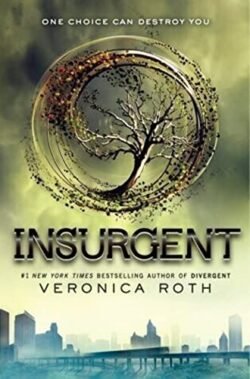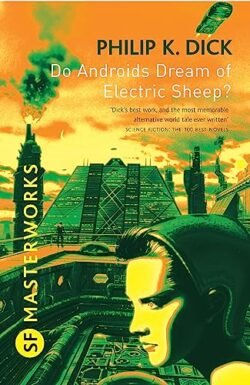“Insurgent,” the second book in Veronica Roth’s Divergent trilogy, published in 2012, continues the tumultuous story of Beatrice “Tris” Prior in a dystopian Chicago. Following the events of “Divergent,” the society’s faction system is crumbling, leading to chaos and conflict. Tris, grappling with guilt and grief from the losses she endured, is more determined than ever to fight against the corrupt leadership that seeks to control and divide its citizens. As she and Tobias “Four” Eaton, along with other allies, seek answers and allies across the remaining factions, Tris’s Divergent identity becomes both a weapon and a burden. The novel delves deeper into the politics of the factions, the nature of power and resistance, and the personal cost of standing up for one’s beliefs. Character Analysis Beatrice “Tris” Prior: Tris’s character undergoes significant development in “Insurgent,” where her resilience, bravery, and commitment to justice are tested to their limits. Her struggles with trauma, loss, and identity bring depth to her character, making her journey of self-discovery and rebellion resonate with readers. Tobias “Four” Eaton: Four’s complex relationship with his past and his identity within the faction system play a crucial role in “Insurgent.” His loyalty to Tris and his strategic mind make him a key figure in the resistance against the oppressive societal structure. Themes and Analysis Authority and Rebellion: “Insurgent” explores the dynamics of power, authority, and the moral complexities of rebellion. The characters are forced to navigate the thin line between justice and revenge in their fight against tyranny. Identity and Belonging: The novel continues to examine the concept of identity in a world obsessed with categorization. Tris’s Divergent nature symbolizes the struggle for individuality and the right to define oneself beyond societal labels. Sacrifice and Loyalty: The theme of sacrifice is central to “Insurgent,” as characters are repeatedly faced with difficult choices that test their loyalty to each other and their cause. “Insurgent” intensifies the conflict and deepens the themes introduced in “Divergent,” offering readers a gripping continuation of Tris and Four’s fight against a fractured society. Veronica Roth skillfully blends action-packed scenes with introspective moments, creating a dystopian narrative that is both thrilling and thought-provoking. The novel’s exploration of resistance, love, and the quest for freedom against the backdrop of a collapsing society keeps readers engaged and sets the stage for the series’ conclusion in “Allegiant.” “Insurgent” stands out as a compelling middle chapter that challenges its characters and its readers to consider the cost of change and the power of resilience. If the summary caught your interest, Consider reading the full book on AbeBooks. Explore this book on AbeBooks
Do Androids Dream Of Electric Sheep?
“Do Androids Dream of Electric Sheep?” by Philip K. Dick is a landmark science fiction novel set in a post-apocalyptic future where Earth is devastated by nuclear war, leading to widespread desolation and the extinction of many animal species. The story follows Rick Deckard, a bounty hunter employed to identify and “retire” rogue androids that have fled to Earth. These androids, indistinguishable from humans except for their lack of empathetic capacity, challenge the very notion of what it means to be human. As Deckard tracks down these androids, he is forced to confront his own morality, empathy, and the value of artificial life. Character Analysis Rick Deckard: Rick Deckard, the novel’s protagonist, embodies the moral and existential quandaries central to the story. As a bounty hunter of androids, his job requires him to suppress his empathy—a trait that distinguishes humans from androids in the novel’s universe. Deckard’s encounters with advanced Nexus-6 model androids, who exhibit sophisticated emotional responses, force him to question the ethics of his work and the nature of his own humanity. Androids (Andys): The androids, or “andys,” primarily the Nexus-6 models, challenge preconceived notions of artificial intelligence and soullessness. Characters like Rachael Rosen and Pris Stratton are particularly instrumental in blurring the lines between human and machine. Their complex behaviors, emotions, and desires for self-preservation prompt readers to reconsider the boundaries of empathy and the rights of sentient beings, regardless of their origin. Themes and Analysis Empathy as a Measure of Humanity: The novel posits empathy as the defining trait of humanity, explored through the empathy test used to identify androids and the characters’ interactions. The Value of Life: Whether through Deckard’s moral conflict or the androids’ fight for survival, the narrative probes the value of life in a world where the line between organic and artificial life is blurred. “Do Androids Dream of Electric Sheep?” offers a profound exploration of identity, empathy, and ethics within the framework of a dystopian future. Philip K. Dick masterfully crafts a narrative that is as engaging as it is thought-provoking, pushing readers to question the essence of humanity in the face of advanced artificial intelligence. The novel’s enduring relevance speaks to ongoing debates about AI, making it a seminal work in science fiction and beyond. Rick Deckard’s journey through a decaying world where androids dream of life serves as a compelling meditation on what it means to be truly human. “Do Androids Dream of Electric Sheep?” offers a profound exploration of identity, empathy, and ethics within the framework of a dystopian future. Philip K. Dick masterfully crafts a narrative that is as engaging as it is thought-provoking, pushing readers to question the essence of humanity in the face of advanced artificial intelligence. The novel’s enduring relevance speaks to ongoing debates about AI, making it a seminal work in science fiction and beyond. Rick Deckard’s journey through a decaying world where androids dream of life serves as a compelling meditation on what it means to be truly human. If the summary caught your interest, Consider reading the full book on AbeBooks. Explore this book on AbeBooks


